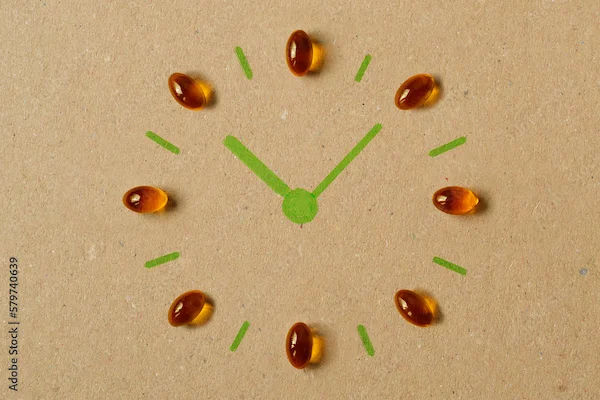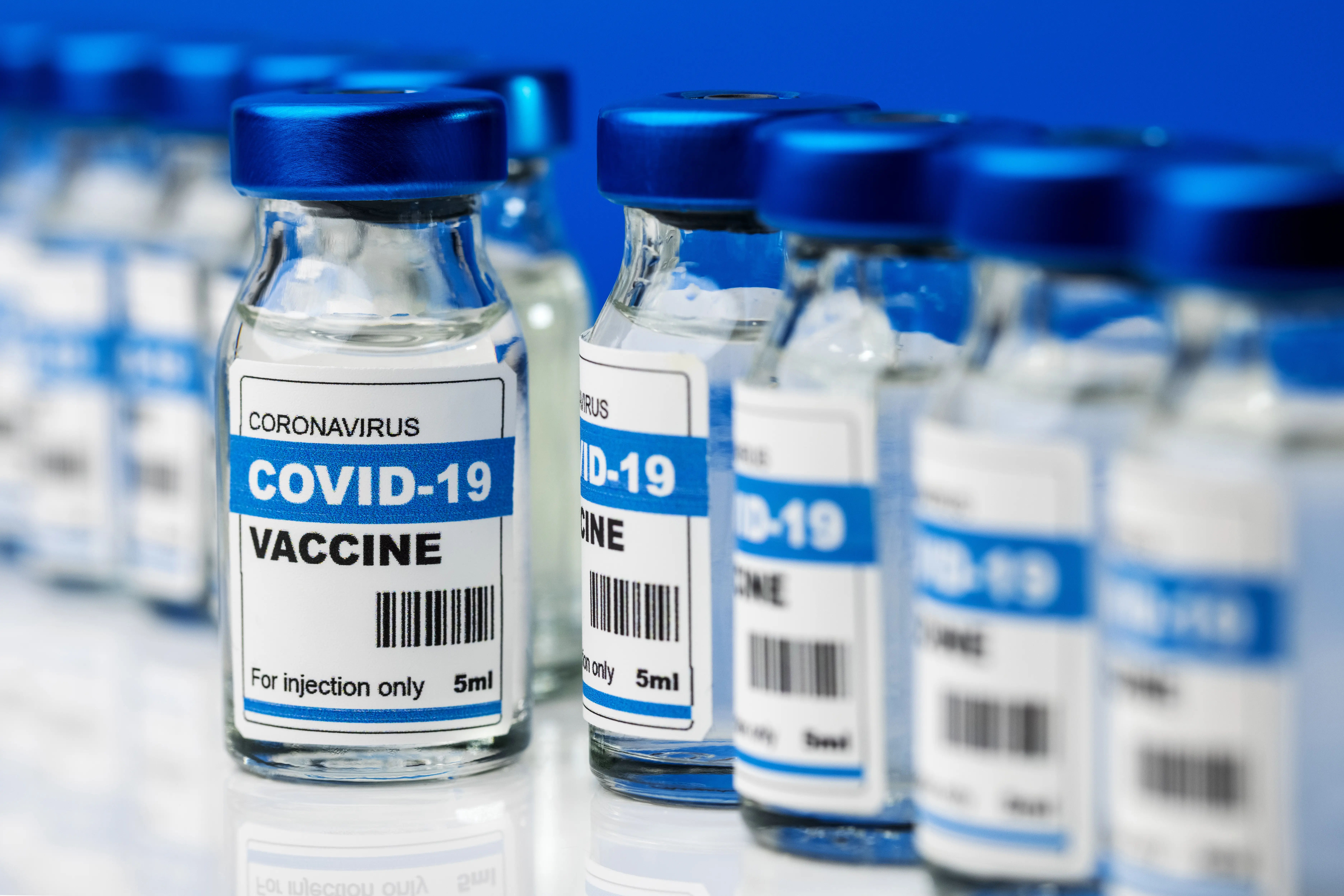Guide to What You Should Eat And After Surgery
Confused about your diet after an operation? Learn the best foods, meal timing, and hydration tips to support your body's healing process and feel better sooner.

Written by Dr. Siri Nallapu
Reviewed by Dr. D Bhanu Prakash MBBS, AFIH, Advanced certificate in critical care medicine, Fellowship in critical care medicine
Last updated on 13th Jan, 2026

Introduction
What you eat before and after surgery can make a real difference in how quickly you heal, how strong you feel, and how smoothly your recovery goes. In the days and weeks after surgery, your body needs extra building blocks—protein, calories, vitamins, and fluids—to repair tissues, fight infection, and restore energy. The challenge? Appetite and taste can be off, pain medicines can cause constipation, and different procedures have different diet rules.
This practical guide translates clinical recommendations into everyday choices. You’ll learn how to progress your diet after common types of surgery, set simple protein and hydration targets, choose foods that reduce constipation and nausea, and build a “recovery pantry” so eating well is easier when you’re tired. You’ll also find a 7-day sample menu, science-backed tips on probiotics, and when to seek medical help. If you’re caring for a loved one after surgery, we’ve got time-saving prep ideas and safe-food handling tips to reduce infection risk. Let’s make your plate part of the recovery plan—so you can get back to feeling like yourself, faster.
Why Nutrition Matters After Surgery?
During and after surgery, your body orchestrates an intense healing program. Inflammation rises to clear debris and microbes, then tissues knit and remodel. That process burns energy and needs raw materials—especially protein—to rebuild muscle and skin. If you under-eat after surgery, you’re more likely to feel weak, lose muscle, and heal more slowly. Clinical guidelines for surgical patients recommend higher protein intakes—typically 1.2–2.0 grams per kilogram of body weight per day—along with adequate calories to maintain weight during recovery. This “anabolic support” helps preserve lean mass and may reduce complications.
Malnutrition (even short-term) increases the risk of surgical site infections, delays wound closure, and predicts longer hospital stays and readmissions. A simple way to think about it: every stitch, staple, and cell in a healing wound is made from amino acids, vitamins, and minerals you supply. Hydration matters too. Dehydration can worsen fatigue, headaches, and constipation, and may stress kidneys already processing anesthesia byproducts.
The good news: small, frequent meals rich in protein; colorful produce for vitamin C and antioxidants; whole grains and legumes for fiber; and steady fluids can meaningfully support recovery. If your appetite is low after surgery, consider “protein pacing”—aim for 25–30 grams of protein at each eating occasion (meals or shakes) to meet your daily goal without huge portions. We’ll show you how to do that with everyday foods in later sections.
How Your Diet Should Progress After Different Surgeries?
Every surgery has its own “diet timeline.” Follow your surgeon’s instructions first; they trump any generic advice. Here’s how the progression typically looks across common procedures.
Abdominal and GI surgery
• Early phase: You may start with clear liquids (broth, diluted juices, oral rehydration solutions) and advance to full liquids (yogurt, milk, protein shakes) as nausea settles and bowel sounds return. Passing gas is a common sign that your gut is waking up after surgery.
• Soft foods: Transition to easy-to-digest items like oatmeal, mashed potatoes, scrambled eggs, tender fish, and well-cooked vegetables.
• Regular diet: Gradually reintroduce raw vegetables, beans, and whole grains. Increase fiber slowly to avoid gas and bloating.
• Tip: Chewing sugarless gum after colorectal surgery has been associated with a quicker return of bowel function in some studies [5]. Ask your team if it’s appropriate for you.
• Long-tail keywords: diet after abdominal surgery, constipation after surgery diet
Dental or ENT surgery (tonsils, wisdom teeth)
• First 24–48 hours: Cool, soft foods reduce irritation—yogurt, smoothies (no seeds), applesauce, ice cream, pudding. Avoid straws after dental extraction to prevent dislodging the clot.
• Days 3–7: Progress to soft scrambled eggs, mashed sweet potatoes, tender pasta, cottage cheese, and protein shakes.
• Avoid: Chili flakes, chips, seeds, alcohol, and hot/spicy foods initially.
Orthopedic and fracture surgery
• Focus: Higher protein and energy to protect muscle and support bone repair. Include calcium and vitamin D-rich foods (dairy, fortified plant milks) and iron if blood loss occurred.
• Fiber/fluids: Counter constipation from opioids with prunes, kiwi, oats, water, and short walks.
Cardiac surgery
• Emphasize: Lean protein, high-fiber whole foods, low sodium to reduce fluid retention. Choose unsalted nuts, beans, fish, olive oil, herbs/citrus for flavor. Read labels: aim <1,500–2,000 mg sodium/day, per your cardiology team.
Cesarean and pelvic surgery
• Start: Clear liquids advancing to soft foods as tolerated. Gentle fiber ramp to avoid straining—oatmeal, ripe bananas, cooked carrots, lentil soups blended smooth.
• Hydration: Important for milk supply if breastfeeding; prioritize water and milk.
Bariatric surgery (brief)
• Strict stages: Clear liquids → full liquids → purees → soft solids → regular textured foods over weeks. Protein-first approach (60–80+ grams daily as directed), lifelong vitamin/mineral supplements. Follow your bariatric team’s plan closely.
The Healing Plate: Protein, Calories, and Timing
Think of protein as the scaffolding of recovery after surgery. Evidence-based targets for surgical patients generally fall between 1.2 and 2.0 g/kg/day, adjusted for your age, procedure, and kidney function [1]. For a 70 kg person, that’s roughly 85–140 grams daily. Hitting this with regular meals is easier if you use “protein pacing”:
• Aim for 25–30 g protein at breakfast, lunch, dinner (e.g., 3 eggs + Greek yogurt; 120–150 g salmon; tofu stir-fry).
• Add 1–2 high-protein snacks or shakes (15–25 g each) if appetite is low.
High-quality protein choices include eggs, dairy/Greek yogurt, fish, poultry, lean meats, tofu/tempeh, lentils, beans, and protein-fortified plant milks. For plant-forward eaters, combine legumes with grains (e.g., lentils + quinoa) to reach targets. If chewing is hard after surgery, use soft options (scrambled eggs, cottage cheese, protein smoothies, pulsed soups).
Calories matter too. Most people need at least maintenance-level calories during recovery to prevent muscle loss. Add healthy carbs for energy—oats, rice, potatoes, fruits—and healthy fats for calories and anti-inflammatory support—olive oil, avocado, nuts, and seeds. Don’t fear carbs; pair them with protein and fiber for steadier blood sugar.
Unique insight: Build a “1–1 plate” at recovery meals: roughly equal halves of protein and produce, with a cupped-hand serving of starch. This automatically raises protein density and micronutrients without overthinking macros. Long-tail keywords: high-protein recovery diet, foods that promote wound healing.
Micronutrients That Matter
Wound healing is micronutrient-intensive after surgery. Prioritize:
• Vitamin C: Supports collagen formation and immune function. Aim for C-rich foods daily—citrus, berries, kiwi, bell peppers, broccoli. Some clinicians use short-term supplementation (e.g., 200–500 mg/day) for patients with poor intake, but food-first is preferred unless advised
• Zinc: A cofactor in tissue repair. Foods: meat, shellfish, beans, nuts, seeds, whole grains. Routine high-dose zinc isn’t recommended unless deficiency is suspected; excess can impair copper status.
• Iron: Important if you lost blood during surgery. Include lean meats, legumes, fortified cereals; pair plant iron with vitamin C for better absorption. If fatigue or dizziness persists, ask your clinician about checking hemoglobin and ferritin.
• Vitamin D: Supports bone health and immunity. Sources: fortified dairy/plant milks, fatty fish, eggs, sunlight. Many adults are low; testing and targeted supplementation may be appropriate.
• B12 and folate: Critical for red blood cell formation and nerve function; ensure adequate intake, especially for vegetarians/vegans or after bariatric surgery.
Supplement strategy: Use food-first with a standard multivitamin unless your team advises more. High-dose single-nutrient supplements after surgery should be clinician-directed to avoid interactions or imbalances. Long-tail keywords: vitamin C and zinc for healing, bone healing nutrition after surgery.
Manage Common Post-Op Problems With Food
Nausea and poor appetite after anesthesia
• Small sips and bites: Start with clear or lightly flavored liquids (ginger tea, diluted apple juice, broth) and advance to bland solids (toast, rice, bananas).
• Ginger and peppermint can help with mild nausea; keep rooms cool and food smells minimal.
• Protein smoothies at room temperature are often better tolerated than hot, aromatic meals.
• If nausea limits eating for more than 24–48 hours after surgery, contact your care team. If symptoms persist beyond two weeks, consult a doctor online with Apollo 24|7 for further evaluation.
Constipation from pain medicines
• Opioids slow the gut; preempt with fiber + fluids: oats, prunes/prune juice, kiwifruit, chia pudding, lentil soups.
• Hydration goal: pale-yellow urine; add a warm beverage in the morning to stimulate movement.
• Gentle movement (short walks) supports motility after surgery.
• If no bowel movement by day 3 post-op or if you have severe abdominal pain, book a physical visit to a doctor with Apollo 24|7.
Diarrhea or loose stools after antibiotics
• Focus on hydration and soluble fiber (bananas, applesauce, oats, rice) to thicken stools.
• Consider probiotic foods (yogurt with live cultures, kefir) or a supplement if your clinician agrees; evidence suggests modest benefits in preventing antibiotic-associated diarrhea in some populations. See the probiotics section below.
Gas/bloating and sore throat
• Gas: Increase fiber slowly after abdominal surgery; try peppermint tea, chew slowly, and avoid carbonated drinks early on.
• Sore throat from intubation: Cool, soft foods and ice chips; room-temp smoothies; avoid acidic juices.Consult a Top Dietetian
Hydration and Electrolytes After Surgery
Fluids support blood volume, kidney function, wound healing, and regular bowels after surgery. A practical target for many adults is roughly 30–35 mL/kg/day (about 2–2.5 liters for a 70 kg person), adjusted for your medical conditions and your team’s advice. Choose water, oral rehydration solutions (ORS), milk/fortified plant milks, and broths. If you’re losing fluids through vomiting, diarrhea, or drains, ORS can help replace sodium and potassium.
Hydration cues: thirst, dark urine, dry mouth, headache, dizziness. Carry a bottle and set phone reminders to sip every 20–30 minutes while awake, especially the first week after surgery.
Special considerations:
• Heart/kidney disease: You may need fluid or sodium limits. Use low-sodium broths and avoid sports drinks unless advised. Monitor daily weights if your cardiac team asked you to.
• Diabetes: Hydrate with water or unsweetened beverages and space fluids with meals to avoid dumping syndrome after certain GI surgeries.
Probiotics, Prebiotics, and Your Gut
Antibiotics, anesthesia, and stress can alter gut bacteria after surgery. What does the evidence say?
• Probiotics: Some strains (e.g., Lactobacillus, Bifidobacterium) may help reduce antibiotic-associated diarrhea and support gut comfort in certain settings [2]. Not all products are equal; timing and strain matter. If you are immunocompromised or had major GI surgery, ask your surgeon before starting a probiotic supplement after surgery.
• Food-first approach: Yogurt with live cultures, kefir, miso, and tempeh offer gentle probiotic exposure.
• Prebiotics: Feed your good microbes with fermentable fibers—oats, bananas, onions, garlic, asparagus, beans—reintroduced gradually after abdominal surgery to limit gas.
Unique insight: In the early days post-op, when appetite is low, a kefir-based smoothie (kefir + banana + peanut butter + honey + cinnamon) can deliver protein, probiotics, potassium, and calories in one gentle package. Long-tail keywords: probiotics after antibiotics, prebiotic foods.
Special Diets and Conditions
Diabetes and blood sugar management
Surgery can drive glucose swings via stress hormones and altered eating. Pair carbs with protein, use smaller, frequent meals, and limit sugary drinks. Choose high-fiber carbs (oats, lentils, whole-grain breads) and monitor sugars more often the first 1–2 weeks after surgery. If levels remain high or low despite adjustments, consult your clinician. Apollo 24|7 offers a convenient home collection for tests like HbA1c and vitamin D if your provider recommends checking them.
Heart/kidney conditions
After cardiac surgery, aim for a heart-healthy pattern: vegetables, fruits, legumes, whole grains, fish, and unsalted nuts; limit sodium and added sugars. If you have kidney disease, discuss protein and potassium targets with a renal dietitian before increasing protein after surgery.
Bariatric surgery
Follow the staged diet your bariatric team prescribes after surgery. Protein-first (often 60–80+ g/day), no drinking with meals, sip fluids between meals, and lifelong vitamin/mineral supplementation are standard to prevent deficiencies [3]. Ask your team about checking iron, B12, vitamin D, and calcium periodically. Apollo 24|7 can support home test collection when labs are ordered.
Smart Meal Planning for Recovery
Stock a “recovery pantry” before the operation
• Proteins: Canned tuna/salmon, nut butters, Greek yogurt cups, cottage cheese, eggs, tofu/tempeh, protein powder.
• Easy carbs: Oatmeal packets, instant brown rice, whole-grain bread, tortillas, mashed potatoes, applesauce cups.
• Produce: Frozen mixed veggies and berries, canned peaches/pears (in juice), baby carrots, bagged salads (for non-GI surgeries).
• Hydration: Broths, ORS packets, herbal teas.
• Flavor: Olive oil, lemon juice, dried herbs, low-sodium spice blends.
Batch-cook simple staples
• Chicken or chickpea soup; lentil dal; shredded rotisserie chicken; soft salmon patties; veggie-packed marinara for quick protein pasta bowls.
• Freeze in single-serve portions for the first week after surgery.
7-day sample menu (adapt as needed)
• Day 1 (soft start): Greek yogurt + honey; banana; chicken broth; mashed potatoes + scrambled eggs; kefir smoothie.
• Day 2: Oatmeal with chia; cottage cheese + peaches; lentil soup; soft fish + cooked carrots + rice.
• Day 3: Eggs + avocado toast; yogurt; turkey quinoa soup; tofu stir-fry (well-cooked veggies).
• Day 4: Protein smoothie; bean and cheese soft taco; salmon + mashed sweet potato; berries.
• Day 5: Overnight oats; hummus + soft pita; chicken pasta with veggie marinara; kiwi.
• Day 6: Omelet with cheese/spinach; peanut butter toast; chickpea curry + rice; yogurt.
• Day 7: Protein pancakes; Greek yogurt parfait; turkey meatballs + polenta; banana.
Adjust textures for dental or GI surgery. For cardiac surgery, use low-sodium choices. For diabetes, control portions and pair carbs with protein.
Safe Food Handling and Appetite Hacks
Preventing foodborne illness
After surgery, your immune defenses are busy healing. Reduce risk:
• Keep hot foods hot and cold foods cold; refrigerate leftovers within 2 hours.
• Avoid undercooked eggs/meats and unpasteurized products.
• Use separate cutting boards for raw meats; wash hands and surfaces thoroughly.
Taste/smell changes and low appetite
• Metallic taste after surgery? Try plastic cutlery, citrus marinades, or cold foods (they release less aroma).
• Plate small portions on smaller plates to avoid overwhelm; eat every 3–4 hours.
• Add calorie/protein boosters: milk powder whisked into soups, olive oil drizzle, nut butters, and grated cheese.
• If appetite remains very low beyond a week after surgery and weight is dropping, contact your team. A dietitian can tailor a plan.
Unique insight: “Flavor triad” to wake appetite—add acid (lemon), fat (olive oil), and herb (dill or basil) to bland proteins for more appeal without extra sodium.
Supplements: When to Use and When to Avoid
• Multivitamin: Reasonable insurance if intake is poor in the first 2–4 weeks after surgery; choose one that meets but doesn’t exceed 100% DV unless advised.
• Protein powder: A Useful tool to hit 25–30 g per meal when appetite is low; whey, soy, or pea blends are fine.
• Cautions: Some supplements increase bleeding risk (e.g., ginkgo, garlic in high doses, ginseng), interact with anesthesia, or affect blood sugars. Most surgical teams advise stopping herbal supplements 1–2 weeks before surgery and delaying reintroduction until cleared. High-dose antioxidants immediately after surgery may theoretically blunt inflammatory signaling needed for healing—talk to your clinician before megadoses.
• Always check supplements and timing with your surgeon/pharmacist.
When to Call a Doctor or Dietitian?
Call your surgical team or seek care if, after surgery, you have:
• Worsening nausea/vomiting that prevents eating/drinking for>24–48 hours
• No bowel movement by day 3 despite diet and laxatives, severe abdominal pain, or persistent diarrhea with signs of dehydration
• Fever, spreading redness, or increasing pain at the incision; foul-smelling drainage
• Rapid weight loss (>2% body weight/week) or signs of malnutrition (muscle weakness, dizziness)
If your condition does not improve after trying these methods, book a physical visit to a doctor with Apollo 24|7. For non-urgent questions (e.g., how to hit protein targets with diabetes after surgery), you can consult a doctor online with Apollo 24|7 or request a nutritionist referral. If labs are needed (iron, B12, vitamin D, HbA1c), Apollo 24|7 offers a convenient home collection.
Conclusion
Nutrition is one of the most powerful, everyday tools you have for recovering well after surgery. When you prioritize protein, stay hydrated, and build meals around soft, nutrient-dense foods, your body gets the raw materials it needs to repair tissue, fight infection, and restore strength. Keep things simple: pace your protein across the day, layer in vitamin C-rich fruits and cooked vegetables, and increase fiber gradually to keep your gut comfortable. Tailor the plan to your procedure—GI and dental surgeries usually need slower texture progressions, while cardiac surgery benefits from low-sodium, heart-healthy choices. If appetite, nausea, or constipation get in your way, the strategies in this guide can help you keep moving forward. And remember, you don’t have to do this alone: your surgical team and dietitian can personalize targets and troubleshoot setbacks. If symptoms persist or you need timely advice, consult a doctor online with Apollo 24|7 or book an in-person visit. With a stocked pantry, a simple meal plan, and a little patience, you’ll nourish your recovery—one small plate at a time.
Consult a Top Dietetian
Consult a Top Dietetian

Ms. Samapti Maity
Dietician
16 Years • MSc. (Clinical Nutrition & Dietitics), NDEP, Course in Maternal Infant Young Child Nutrition.Diploma in Sports Nutrition, Diploma in Diabetic educator, FODMAP Specialist
Kolkata
BIENETRE CLINIC, Kolkata

Ms. Soma Saha
clinical nutrition
17 Years • B.Sc. - Home Science (Food & Nutrition), M.Sc. - Home Science (Food & Nutrition)
Kolkata
Dr Utsa Basu Clinic, Kolkata
(50+ Patients)

Ms Suvashree Bhattacharya
Dietician
7 Years • Allied Healthcare professional
Dumdum
Sigma Health Care, Dumdum

Ms Suchanda Guha
Dietician
10 Years • M.Sc (Applied Nutrition), B.Sc (Food & Nutrition), Diploma (Yogic Nutrition)
Kolkata
NutriKutir, Kolkata

Ms Divya Gandhi
Dietician
10 Years • Diploma in Nutrition and Dietetics
Delhi
Diet and Cure, Delhi
(325+ Patients)
Consult a Top Dietetian

Ms. Samapti Maity
Dietician
16 Years • MSc. (Clinical Nutrition & Dietitics), NDEP, Course in Maternal Infant Young Child Nutrition.Diploma in Sports Nutrition, Diploma in Diabetic educator, FODMAP Specialist
Kolkata
BIENETRE CLINIC, Kolkata

Ms. Soma Saha
clinical nutrition
17 Years • B.Sc. - Home Science (Food & Nutrition), M.Sc. - Home Science (Food & Nutrition)
Kolkata
Dr Utsa Basu Clinic, Kolkata
(50+ Patients)

Ms Suvashree Bhattacharya
Dietician
7 Years • Allied Healthcare professional
Dumdum
Sigma Health Care, Dumdum

Ms Suchanda Guha
Dietician
10 Years • M.Sc (Applied Nutrition), B.Sc (Food & Nutrition), Diploma (Yogic Nutrition)
Kolkata
NutriKutir, Kolkata

Ms Divya Gandhi
Dietician
10 Years • Diploma in Nutrition and Dietetics
Delhi
Diet and Cure, Delhi
(325+ Patients)
More articles from General Medical Consultation
Frequently Asked Questions
Q1: How much protein should I eat after surgery if I’m 60 kg and not very active?
.Aim for 1.2 -- 1.5 g/kg/day after surgery unless your clinician advises otherwise. For 60 kg, that’s about 72–90 g daily. Use a high-protein recovery diet with 25–30 g per meal plus a snack or shake.
Q2: What are the best soft foods after dental surgery?
ry Greek yogurt, cottage cheese, scrambled eggs, mashed potatoes, oatmeal, smoothies without seeds, applesauce, and pureed soups. Avoid straws and crumbly/chunky foods in the first days after surgery.
Q3: How do I prevent constipation from pain medications after surgery?
Increase fluids, add soluble fiber (oats, prunes, kiwi), and take short walks. Consider a fiber supplement or stool softener if your team recommends it. If no bowel movement by day 3 after surgery, consult a doctor online with Apollo 24|7.
Q4: Should I take vitamin C and zinc supplements after surgery?
Food-first is preferred. Short-term, modest vitamin C (e.g., 200–500 mg/day) and standard-dose zinc may be considered if intake is poor, but avoid high doses unless your clinician advises. Ask before starting any supplement after surgery.
Q5: Are probiotics helpful after antibiotics are used during surgery?
Certain probiotic strains may reduce antibiotic-associated diarrhea in some people. Fermented foods (yogurt, kefir) are a gentle start. If you had GI surgery or are immunocompromised, consult your surgeon before starting a supplement.




